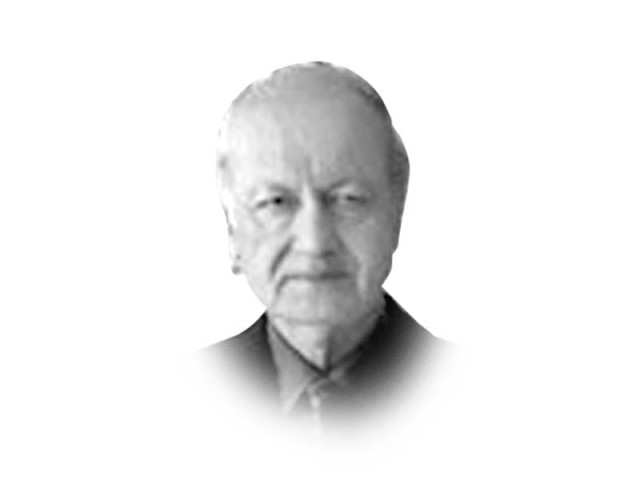Incentivising change
No change in policy direction can succeed without support of army. For any change to occur, army has to change itself.

If we look at the power structure that rules the country — politicians, military leaders, bureaucrats, feudal and business elite all have their vested interests in retaining the status quo. Notwithstanding a tactical shift, the army leadership continues to maintain India as a primary threat. This strategic posture allows it to retain a special position in allocation of national resources and in critical decision-making in foreign and defence issues. It ignores the fact that the nuclear factor largely precludes the possibility of Indian aggression. Moreover, New Delhi is currently focused on sustaining high economic growth and conflict with Pakistan would undermine its development and destabilise the region.
The reality is that Pakistan is facing an existential threat from the home-grown Tehreek-e-Taliban Pakistan and the jihadi outfits and this is where the national focus should be. On the contrary, more than half the country is not even prepared to accept it as our fight. The army is also unwilling to shed its dominance over civilian institutions, giving an impression that it suits the military if the civilian government is weak and incompetent. In this way, it can retain its economic and political dominance. Our civilian leadership is even more deeply entrenched in retaining the status quo. The political parties have become dynastic and for them, power is a means of personal aggrandisement and an avenue for milking state resources. Why should they be interested in reforming the tax structure or eliminating corruption? Similar logic could be advanced for the business and feudal class, as they would like to perpetuate themselves and the current system.
The whole thing boils down to what will incentivise them to change?
We have already fought three wars with India, lost half of our country, are currently facing a dangerous insurgencies in Fata and Balochistan that do not seem to have an end. These earth-shaking events have failed to move our elite. Does it then have to be a violent revolution or can we draw lessons from the experience of other successful countries like South Korea, Malaysia and Turkey and chart a new, positive course for ourselves.
No institution has been more important for Pakistan’s integrity and progress than its military. And no change in policy direction can succeed without the support of the armed forces. It is equally true that for any change to occur, the army has to change itself. It would be in the long-term interest of the military to be focused on its profession and stay away from politics. It will further raise its image domestically and internationally. The army leadership should also realise that good relations with India and other neighbours will strengthen and not weaken the defence of Pakistan. The importance of good neighbourliness has already dawned on the civilian leadership across the political spectrum, but the army has yet to harmonise its thinking to be in step. Improving relations with India, however, does not imply that all of India’s policies are benign and that it is not building up a huge military machine.
The civilian leadership has to change even in more fundamental ways. It has reduced democracy to elections where the leadership seems least concerned about performance. On the other hand, people expect governance to be impartial and more accessible. The central question is whether our leaders have a long-term collective vision beyond individual or group self-interests. As of now, the political system is corrupt and the leadership has lost its credibility. But if the forthcoming elections are well fought over and competitive, right thinking leadership is likely to emerge. The future of Pakistan revolves around throwing up better leadership, which can override the pressures of populism and address the major problems facing the country. Democracy that derives legitimacy from the people must be able to project the long distance vision and hopefully bring about changes that Pakistan so desperately needs.
Published in The Express Tribune, July 25th, 2012.














COMMENTS
Comments are moderated and generally will be posted if they are on-topic and not abusive.
For more information, please see our Comments FAQ